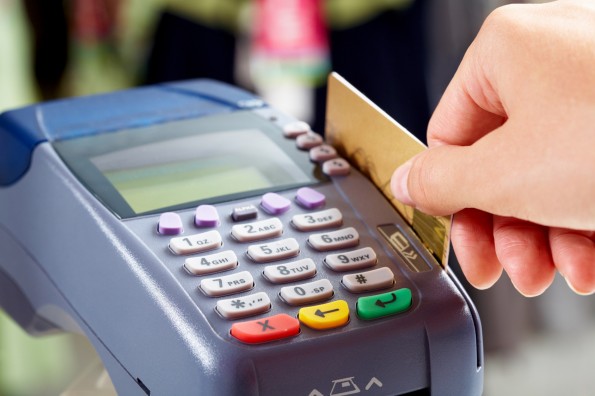
There are many ways to keep from getting caught in the ‘Sucker Trap’ of store credit cards, starting with the obvious: never signing up for one in the first place. But the bait used to trap you may prove too tempting to resist. So, here are six ways to protect yourself if you get caught in the sticky web of store credit cards:
- There are two major times when you will be offered sweet bait to sign up for a store card: First, you may receive a notice or see an ad about a great sale or a terrific cash discount going on right now, and you can sign up for the store card for free, and put your purchase on the card. Second, when you are at the checkout counter, the clerk may offer you a sizable amount off your purchase if you sign up for the store’s card. Never impulsively accept the offer of a card. Think about the minimum payment you’ll have to make every month. Will it be easy to take the money out of your monthly budget?
- Negotiate and then negotiate some more. Some stores pay commissions to staffers who persuade customers to sign up for their card. To get that commission, the salesperson may be willing to extend the interest free time period or increase the promotional discount or make other changes to get you to sign on the line.
- Take advantage of the bait, but don’t take the credit. Sign up for the card, but after getting your discount at the register, go to customer service and pay off the entire amount. If it’s a big item that you can’t pay off all at once, always pay more than the minimum payment each month. Make some sacrifices. Instead of eating out, eat at home and apply the money you saved to the balance owing on the card.
- Examine your statement carefully each month. You may be billed a late fee that you don’t actually owe. If you can catch this immediately, you can often have it removed. But don’t bother calling the store; call corporate. They are usually the only ones who can remove a late fee or other charge. The corporate number should be on your statement.
- If the interest free time period is close to ending, and you don’t have the funds to pay off the remaining balance, do some calculation. Would it cost less than the interest sum to borrow the payoff money from your bank or credit union? Do you have a friend or religious leader who could provide a short term loan? If the back interest will hit you with an extra hundred dollars or more, is there something you can sell, or could you obtain temporary part time work to provide money to pay off the item before the lump sum of interest is added to your balance?
- There’s a nasty aspect of the trap that I learned about with my Kohl’s card. I had paid it off and closed the account, so I nearly tossed away what looked like a statement that came later. Good thing I didn’t; the statement showed a ‘balance’ of three dollars. Those three dollars could have ended up costing me about $150 in late fees and full back interest. I took the bill to Kohl’s and talked to customer service, telling them I had paid off the entire account and didn’t owe this puny sum. The clerk called corporate and got the three dollar charge removed. She also wrote a note on the statement saying that there was a zero balance on the account, and it had been closed.
I have since learned that this is a fairly common occurrence with store credit cards. Whenever you fully pay off a charge on a card, always get in writing that you have paid the full amount, and there is no balance remaining. Have an acknowledgement sent to you both as an email and by the Postal Service. Make sure you can’t be financially dinged by a claim of money still owing when the interest free time period is up. Don’t trust that your final payment was a full payoff. Call corporate and find out. Remember that wise old saying: trust, but verify.
 There are many ways to keep from getting caught in the ‘Sucker Trap’ of store credit cards, starting with the obvious: never signing up for one in the first place. But the bait used to trap you may prove too tempting to resist. So, here are six ways to protect yourself if you get caught in the sticky web of store credit cards:
There are many ways to keep from getting caught in the ‘Sucker Trap’ of store credit cards, starting with the obvious: never signing up for one in the first place. But the bait used to trap you may prove too tempting to resist. So, here are six ways to protect yourself if you get caught in the sticky web of store credit cards:





